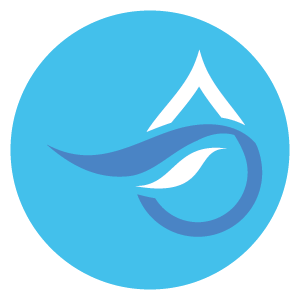

Access to safe drinking water is a daily challenge for the people of northern Syria, as the destruction of drinking water infrastructure, poor resource management, and ongoing population displacement contribute to an increasingly acute shortage of clean drinking water. Access to safe water depends on the regular and reliable availability of energy sources and electricity. The chronic energy crisis in northern Syria causes an increased need to ensure the capita quota to cover all aspects of daily life including cooking, bathing, and washing, and basic needs such as daily drinking water and safe disposal of sewage.
The objectives of the platform in water systems are in:
o Establishing a comprehensive database for all water resources in the targeted areas.
o Sharing information with all humanitarian agencies and supporting actors, researchers and decision-makers with scientific studies and consultations.
o Highlighting the gaps and needs in the water sector in the targeted areas.
o Establishing a technical platform and holding periodic meetings that bring together all the actors and holding participatory technical workshops and seminars to share experiences and expertise.
o Ensure the safety and quality of drinking water by conducting periodic analyzes.
o Holding periodic technical trainings to raise the efficiency of operating institutions and organizations.
In order to monitor water quality in northern Syria, the platform has a team of researchers and technicians in the field distributed geographically to cover all areas, where the team is equipped with the tools necessary to detect water quality in the available private and public resources, and accordingly, the platform submits bi-monthly reports on Water-borne diseases, type and number, in addition to an interactive map that is updated regularly that contains the sterilization status in drinking water stations in northern Syria.
Moreover to achieve sustainability and permanent access to safe drinking water, the platform supports sustainable projects and renewable energies, such as activating solar energy systems in drinking water stations. The platform also aims to enhance community participation and activate tariff systems in local communities in northern Syria through technical support for existing projects and the establishment of technical trainings. For water staff in addition to seminars with the beneficiaries to enhance the culture of supporting service sectors.
With the continuing crisis in northern Syria, the infrastructure and sanitation facilities available for sewage disposal and treatment are insufficient to meet people's needs, causing groundwater pollution and increasingly threatening public health. The absence of a policy or institutional framework for treating or re-using this water, nor guidance on the most effective techniques in the current situation to confront the crisis and the optimal investment of these resources, in addition to the existence of gaps in data collection, monitoring and management, as well as in coordinating activities, and access to reliable data regarding the state of Load More Access to safe drinking water is a daily challenge for the people of northern Syria, as the destruction of drinking water infrastructure, poor resource management, and ongoing population displacement contribute to an increasingly acute shortage of clean drinking water. Access to safe water depends on the regular and reliable availability of energy sources and electricity. The chronic energy crisis in northern Syria causes an increased need to ensure the capita quota to cover all aspects of daily life including cooking, bathing, and washing, and basic needs such as daily drinking water and safe disposal of sewage.
The irrigation sector in the north of Syria suffers from a lack of support, the decrease in the irrigation sector fund in the Syrian crisis led to a significant decline in this sector due to the suspension of many irrigation projects that led to the deterioration of the living conditions of farmers and the decline of the area of cultivated land. The absence of governmental institutions and mechanisms of governance led to a great depletion of groundwater, in addition to the threat to public health and the low quality of products due to the use of polluted water.
From this standpoint, irrigation development projects are considered a priority within the strategies of the Water Resources Platform that seeks to achieve sustainable development in the situation of the irrigation sector in northern Syria through the protection of groundwater and the optimal investment of surface water resources, in addition to improving the agricultural product and the area of cultivated land. The platform’s strategy in the irrigation sector is reflected in the objectives:
Input your search keywords and press Enter.